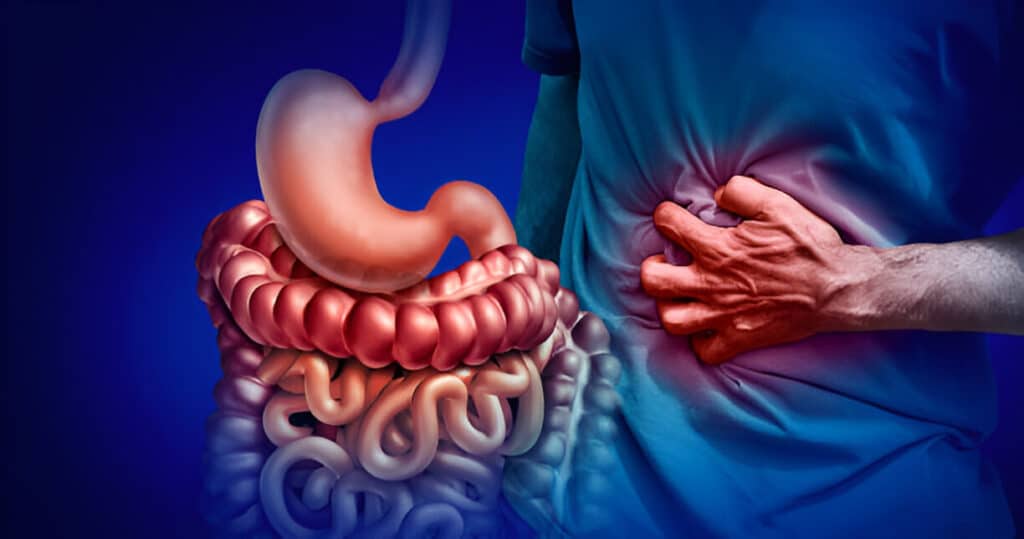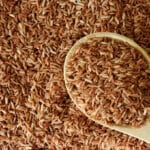You are not alone if you have ever felt uncomfortable full, gassed, or bloated after drinking coffee. Just a basic search for “can coffee cause bloating” reveals thousands of questions from others with comparable stomach trouble. Coffee can cause bad symptoms in certain people even if it is packed with health advantages and renowned worldwide for its energy-boosting properties.
We will discuss in this post how coffee affects your digestive system, why it might cause bloating, and most importantly what you can do to stop it? Supported by medical professionals and knowledge from reputable health organisations, you will learn whether your morning coffee is really to blame.
Why Coffee Could Make One Bloated
Can coffee cause bloating arises for a number of different reasons. While some of these result from additions like milk or sugar, others are brought on by caffeine alone.
| Potential Origin | Why might it cause bloating? |
| Caffeine | increases cortisol and stomach acid, therefore upsetting the digestive system |
| In acidity | Particularly on an empty stomach, can cause acid reflux or stomach pain. |
| Creamer or milk. | Contains lactose, which many adults find difficult to break down, causing bloating and gas. |
| Synthetic sweeteners | Poorly absorbed sorbitol and aspartame ferment in the intestines and produce gas |
| Drinking on an empty stomach | Raises stress hormone levels and acid generation, so upsetting digestion |
Is Caffeine to Share Responsibility for the Bloat?
Many individuals query, “does caffeine cause bloating” or “does caffeine bloat you”? Though not always, the response is indeed yes.
A stimulant, caffeine alters your digestive tract and central nervous system. It raises the hormone gastrin, therefore stimulating stomach acid. Although that might sound like a benefit for digestion, in too great quantities it can lead to:
- Reflux caused by acid
- Loose bowel movements
A study published in Gut Journal claims that coffee makes the stomach expand more than equivalent volume of water. Those with sensitive stomachs may experience bloating or discomfort from this gastric enlargement.
Caffeine also increases cortisol, a stress hormone, which has been related to digestive problems including IBS symptoms.
Additives Designed to Exacerbate Bloating
Often, what you add to the coffee makes all the difference in causing discomfort. If you feel bloating after coffee, your choices of dairy or sweetener could be the underlying offender.
Dairy and Cream
Up to 65% of the world’s population suffers impaired lactose digestion following infancy. Adding milk or cream may produce:
- Petroleum
- Squinting
- Colitis
- Indigestion
Sugar and Sweeteners
Sugar can encourage gas-releasing bacterial fermentation in your gut. Artificial sweeteners such as aspartame and sorbitol are not totally digested and cause bloating in the gut.
| Adding | Bloating Risk | Superior Alternatives |
| Whole Milk | High | Oat or almond milk |
| Sugar | Medium | Honey or none at all. |
| Sorbitol | High | Stevia in moderation |
| Flavoured Syrups | High | Natural vanilla or cinnamon extract. |
Why Some People Experience Bloating While Others Do Not
Curious as you are? “Does everyone get bloated from coffee?” The response is no. Individual elements including age, gut flora, current GI disorders, and caffeine sensitivity all matter.
Those more prone to bloat:
- IBS sufferers (Irritable Bowel Syndrome)
- GERD or gastritis sufferers
- People having lactose intolerance
- Coffee drinkers on an empty stomach
Should any of the above apply, you might wish to change your coffee intake or reduce back.
Which Type of Coffee is Least Likely to Induce Bloat?
Not every coffee is made equally. Key determinants of acidity and caffeine content both of which impact coffee and bloating are roast type, brew method, and bean source.
| Type | Level of Acidity | Potentially Bloating |
| Cold Brew | Low | Less |
| Dark Roasts | Lower | Medium |
| Light Roast | Higher | Higher |
| Decaf | Mild acid, low caffeine | Low-moderate |
| Low-acid Coffees | Very low | Very low |
Low-acid coffees, such as those from Central America or specifically treated beans, are less likely to irritate your stomach. Furthermore, cold brew is well-known to have 70% less acidity than hot brewed coffee.
Advice to Help You Avoid Bloating Following Coffee
Here are tried methods to savour your coffee free of bloat:
- Coffee should not be drunk empty-handed. Eat a modest meal to help control acid generation.
- Then go to cold brew or low-acid coffee. These pass better on your stomach.
- Choose non-dairy substitutes. Gentler are almond, oat, or coconut milks.
- Steer clear of synthetic sweeteners. Choose none at all or natural sweeteners.
- Cut coffee intake to one to two glasses daily. This lessens cortisol bursts.
- Maintain your hydration. To prevent constipation brought on by dehydration, sip water alongside coffee.
- Manage your triggers. Create a food and drink diary to identify the precise origin.
When Should One See a Doctor?
If you have experimented with changing your coffee intake and still have:
- Excruciating stomach pain
- Vomiting or nausea
- Bloody faeces
- Diarrhoea lasting more than one week
While not the main cause, coffee can cause gas and bloating as a symptom trigger. Conditions including bacterial overgrowth, ulcers, or Crohn’s disease could be causing ongoing bloating.
Can Coffee Either Help or Damage Weight Loss?
Many people feel coffee increases metabolism. That is just half accurate; coffee can somewhat raise calorie burn. It can also elevate cortisol, though, which causes poor sleep and fat storage.
Acting as a moderate diuretic, coffee causes not fat but rather transient weight loss by shedding water weight. Conversely, skipping meals after coffee could cause binge eating later, therefore negating the advantage.
Conclusion
Can coffee then make one bloated? Yes, coffee can cause bloating, especially in people with sensitive stomachs or specific dietary intolerances. Whether it affects you, though, will rely on several elements like your stomach’s sensitivity, what you add to your coffee, how much you drink, and when you consume it.
The positive news is often avoiding the bloat while still enjoying your daily cup is possible with little adjustments like going to cold brew, omitting the cream and sugar, or not drinking coffee on an empty stomach.
Should symptoms continue, visit a doctor to rule out underlying intestinal problems. After all, just as much as your morning ritual counts, so does your intestinal health.
FAQs.
- Q: Does black coffee aggravate bloating?
- Given its high acidity and caffeine content, black coffee will cause bloating for some people, particularly when consumed on an empty stomach.
- Given its high acidity and caffeine content, black coffee will cause bloating for some people, particularly when consumed on an empty stomach.
- Q: Is decaf better in avoiding bloating?
- While it still has some acidity and caffeine, it’s generally gentler for sensitive stomachs.
- While it still has some acidity and caffeine, it’s generally gentler for sensitive stomachs.
- Q: Should my bloating originate from coffee, how can I find out?
- Track symptoms and cut it for one to two weeks. Reintroduce gradually under observation of reaction.
- Track symptoms and cut it for one to two weeks. Reintroduce gradually under observation of reaction.
- Q: Can drinking extra water alongside coffee help?
- Agreed. It helps digestion and avoids constipation connected to dehydration.
- Agreed. It helps digestion and avoids constipation connected to dehydration.
- Q: Are good substitutes herbal teas?
- Of course. Teas made from peppermint, chamomile, or ginger help the intestines.
References Used in the Article
Healthline: Coffee – Good or Bad?
https://www.healthline.com/nutrition/coffee-good-or-bad
Mayo Clinic: Caffeine Content and Side Effects
https://www.mayoclinic.org/healthy-lifestyle/nutrition-and-healthy-eating/expert-answers/caffeine/faq-20057965



